SECTION FOUR:
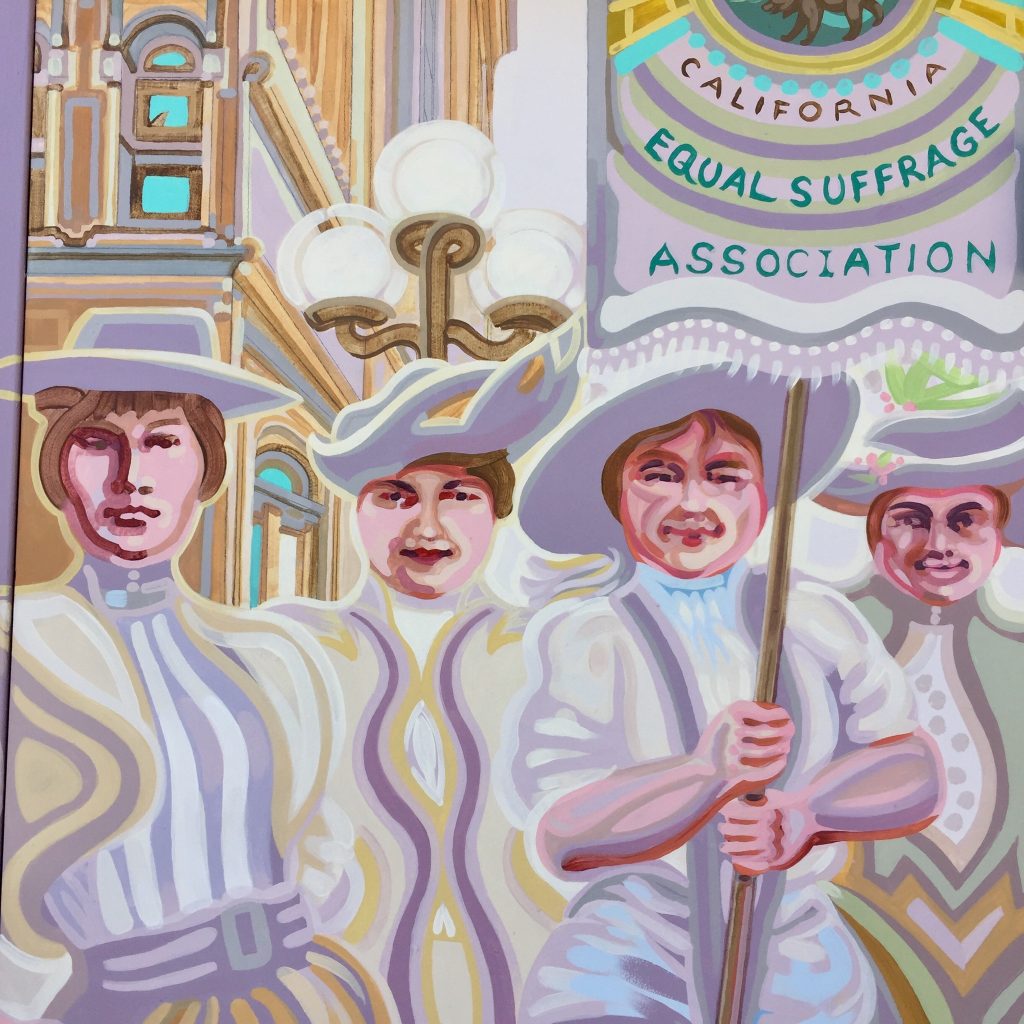
The photo below is how the panel was left in 2018. The ranching theme expresses the independence of a rural lifestyle. Mendocino County has a strong attitude of self-reliance and of locally producing the foods and products we consume.
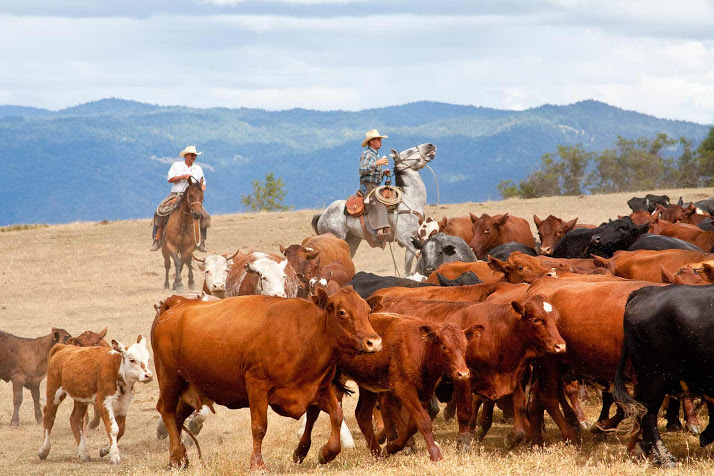
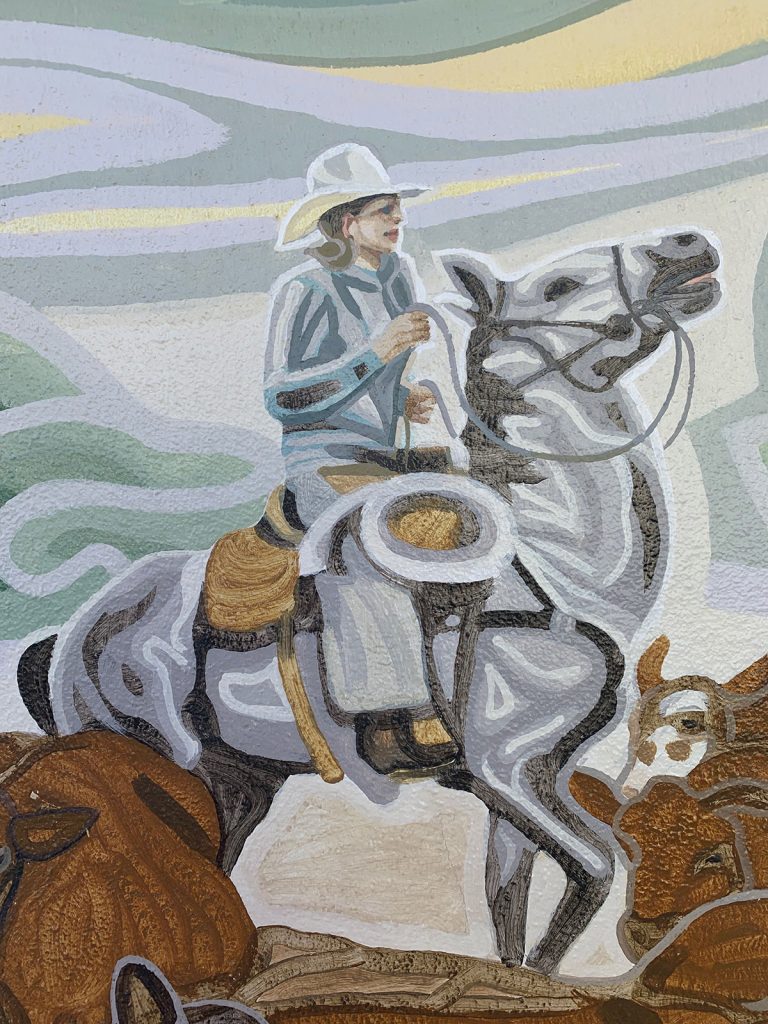
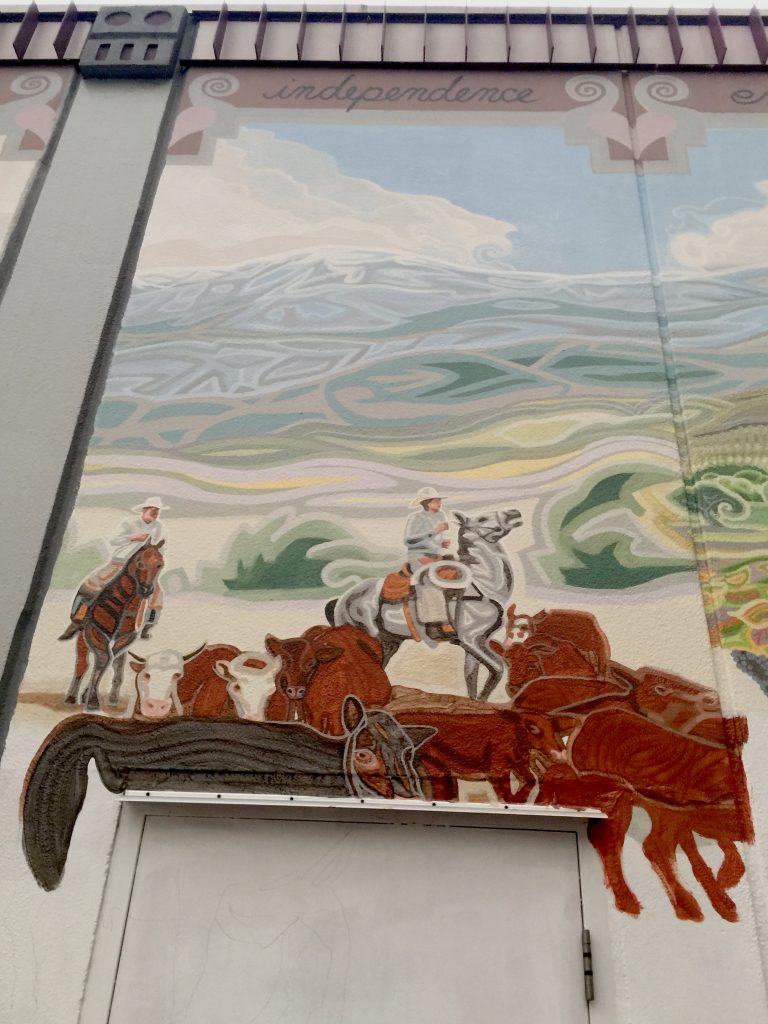
As I pondered the lower part of the panel, the door made me think of using it in the imagery.
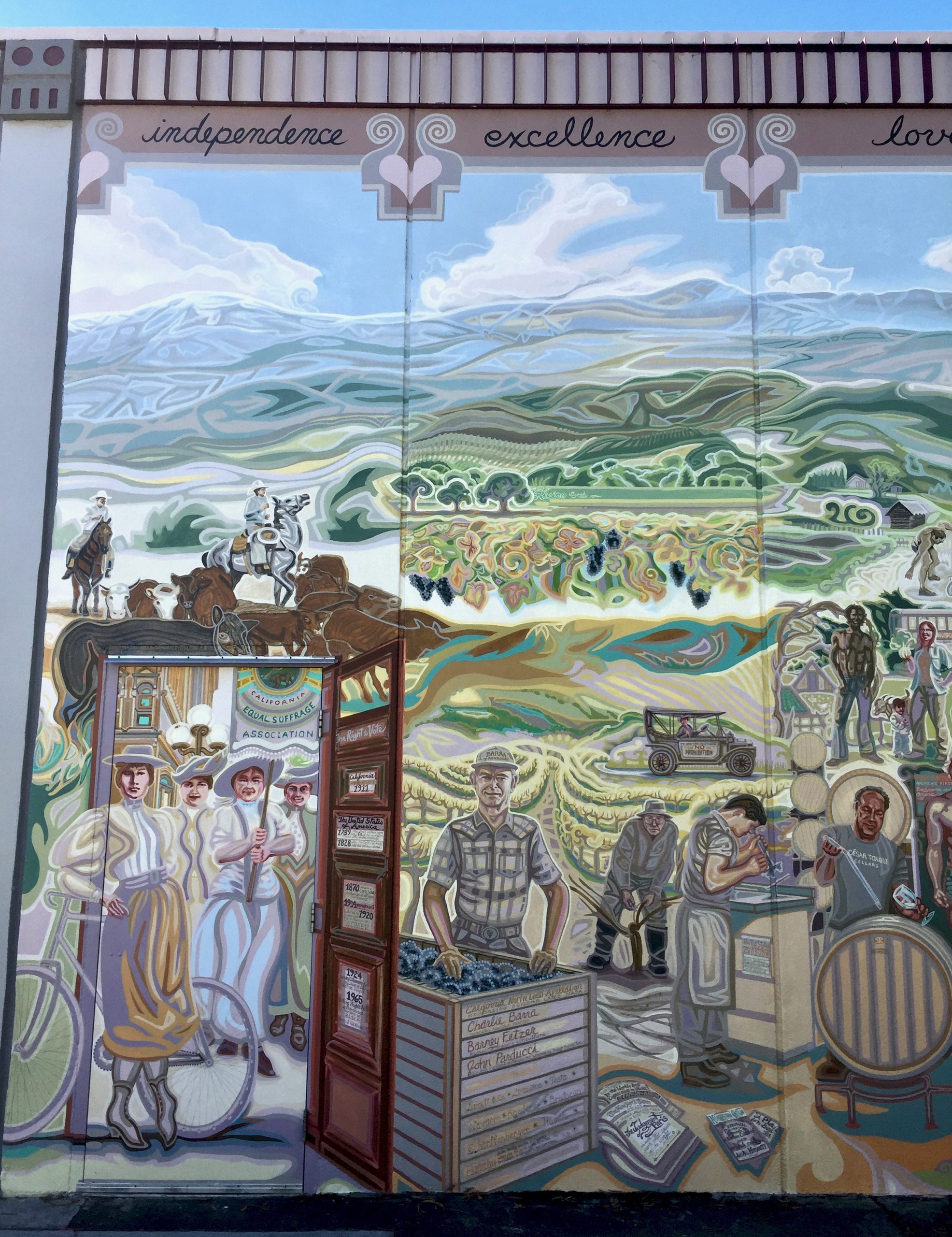
2020 was the centennial year of women’s suffrage in the United States and I flashed on women suffragists bursting through this door of opportunity as they fought for independence through the right to vote!
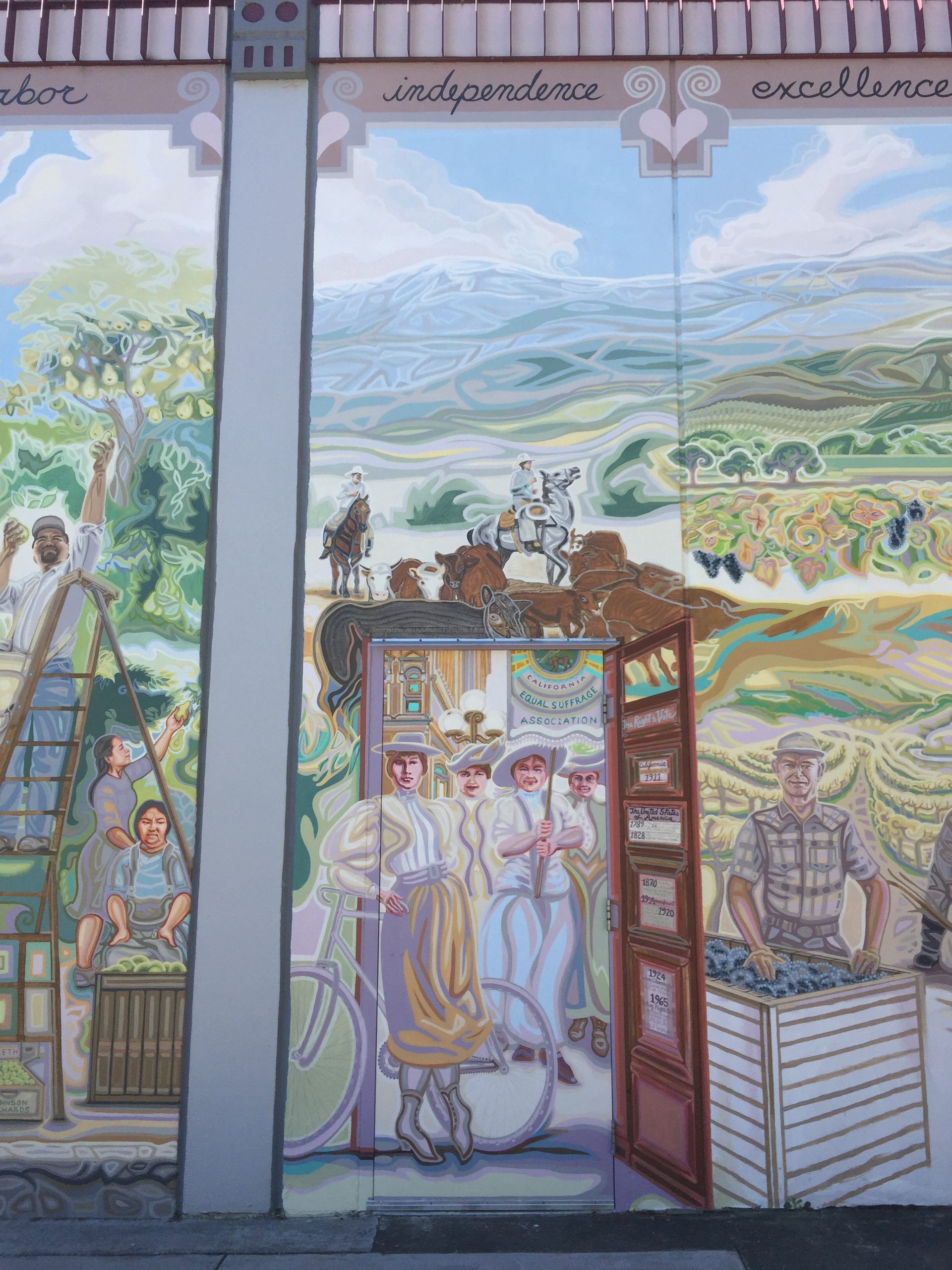
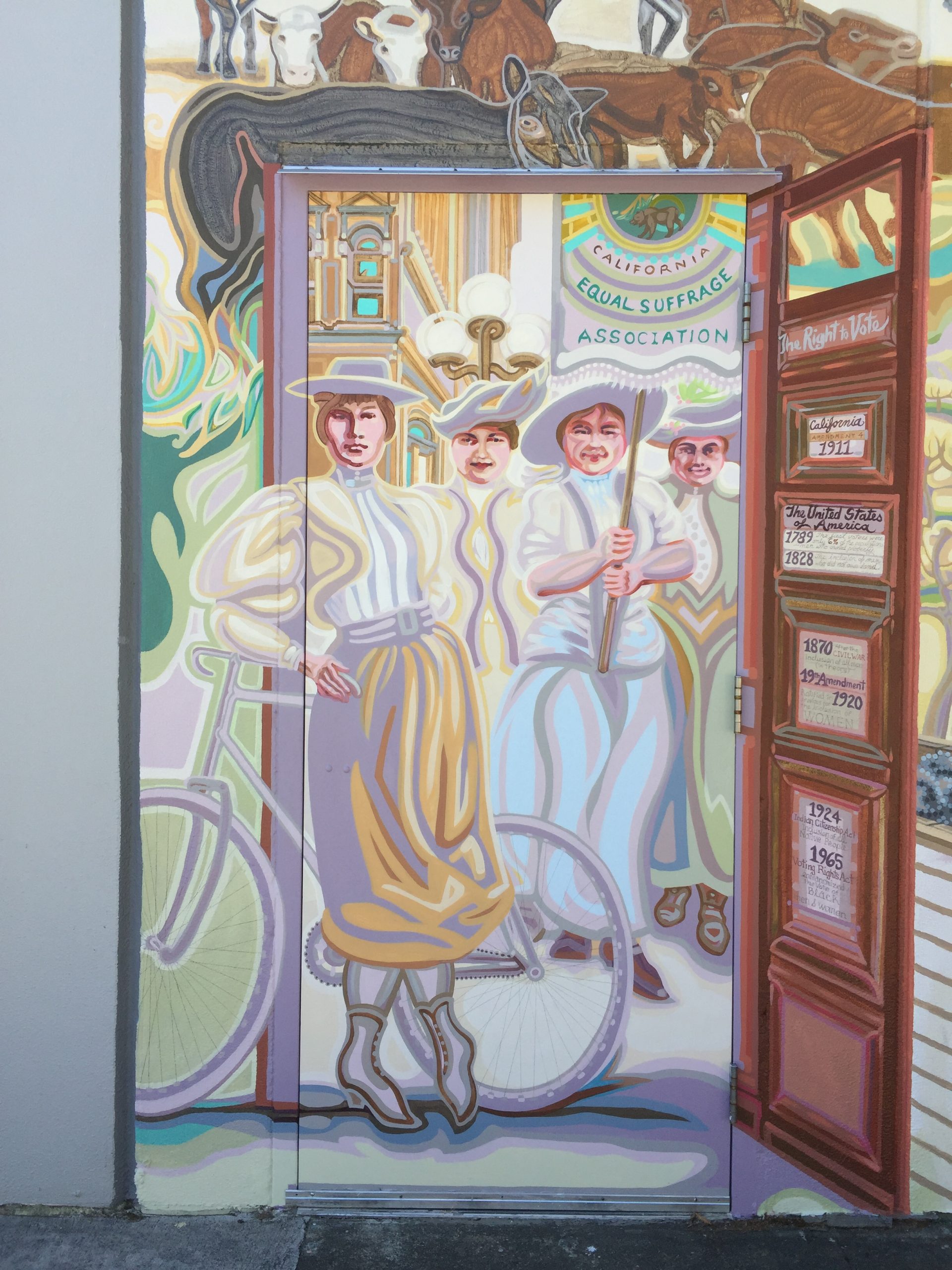
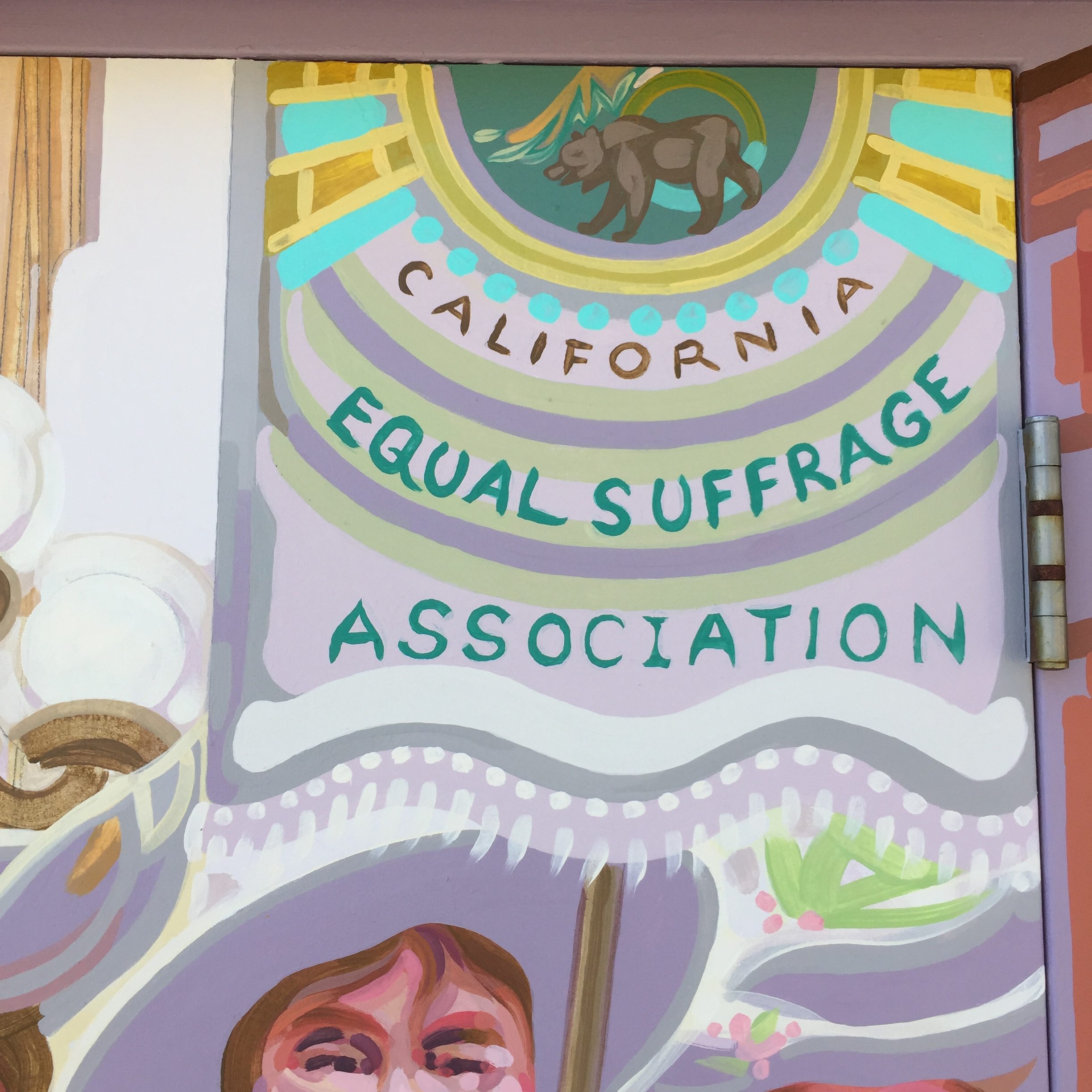
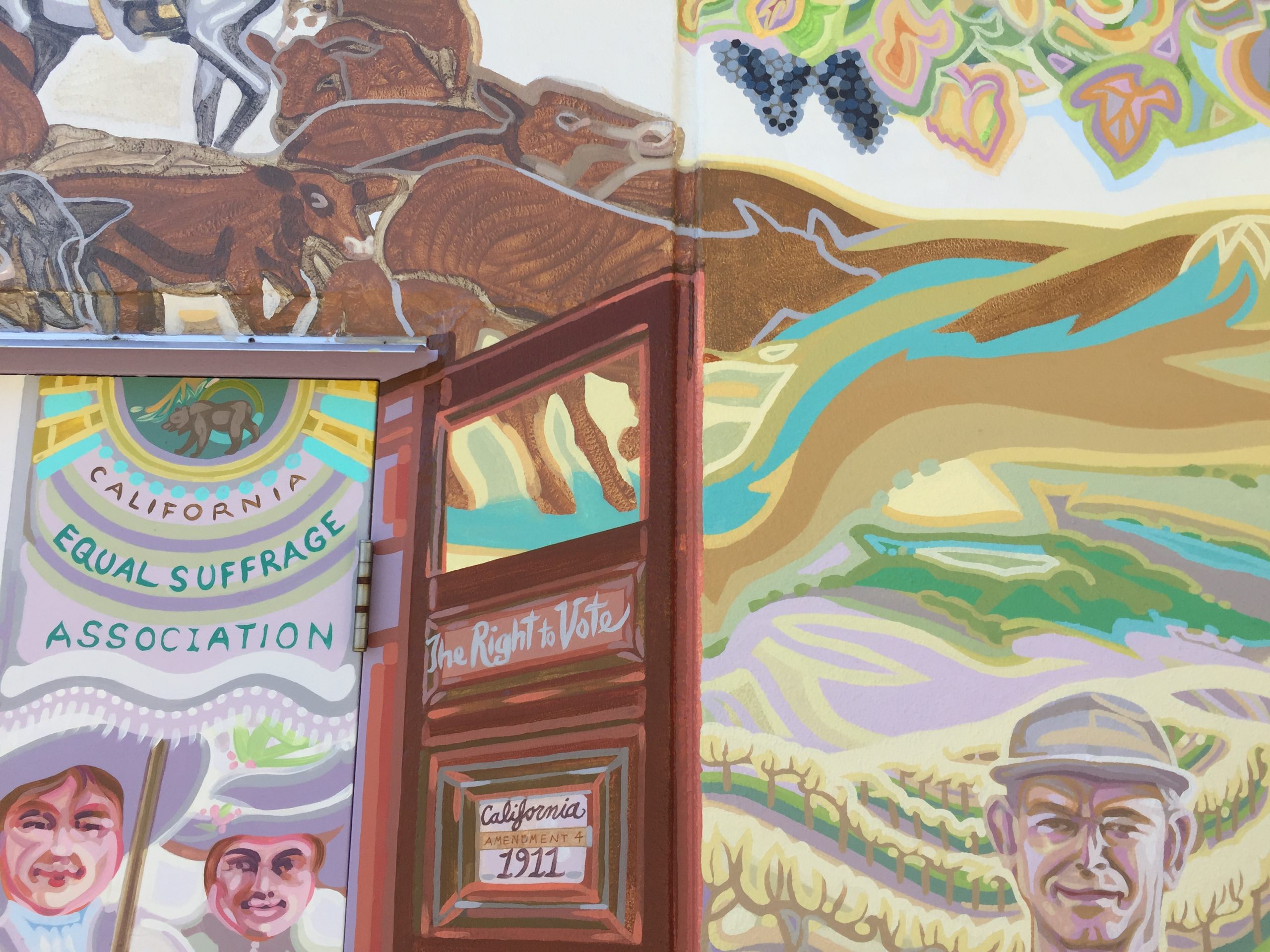
The demand for women’s suffrage – the right to vote – gathered strength in the 1840’s, part of a broader push for women’s financial rights and personal, as well as professional autonomy.
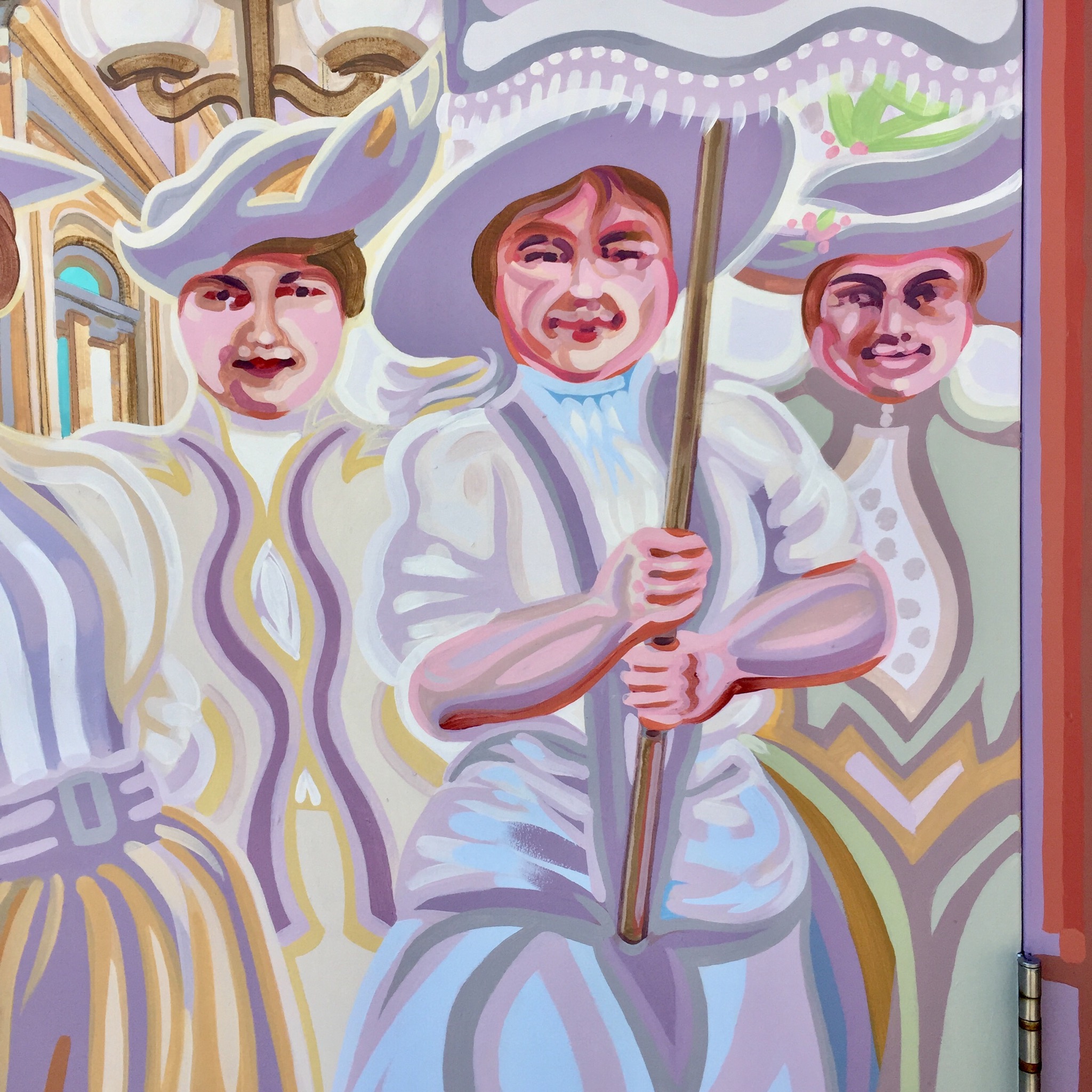
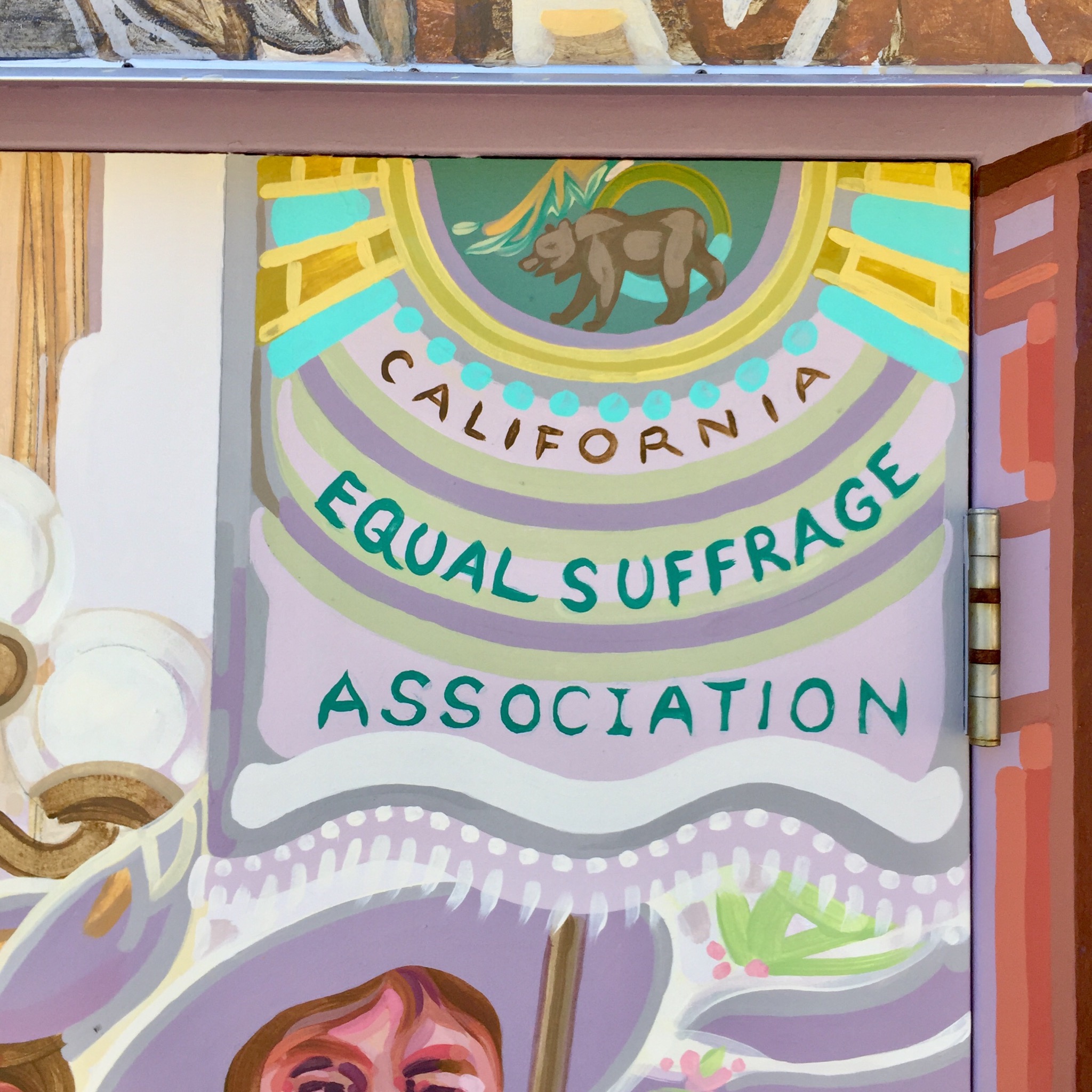
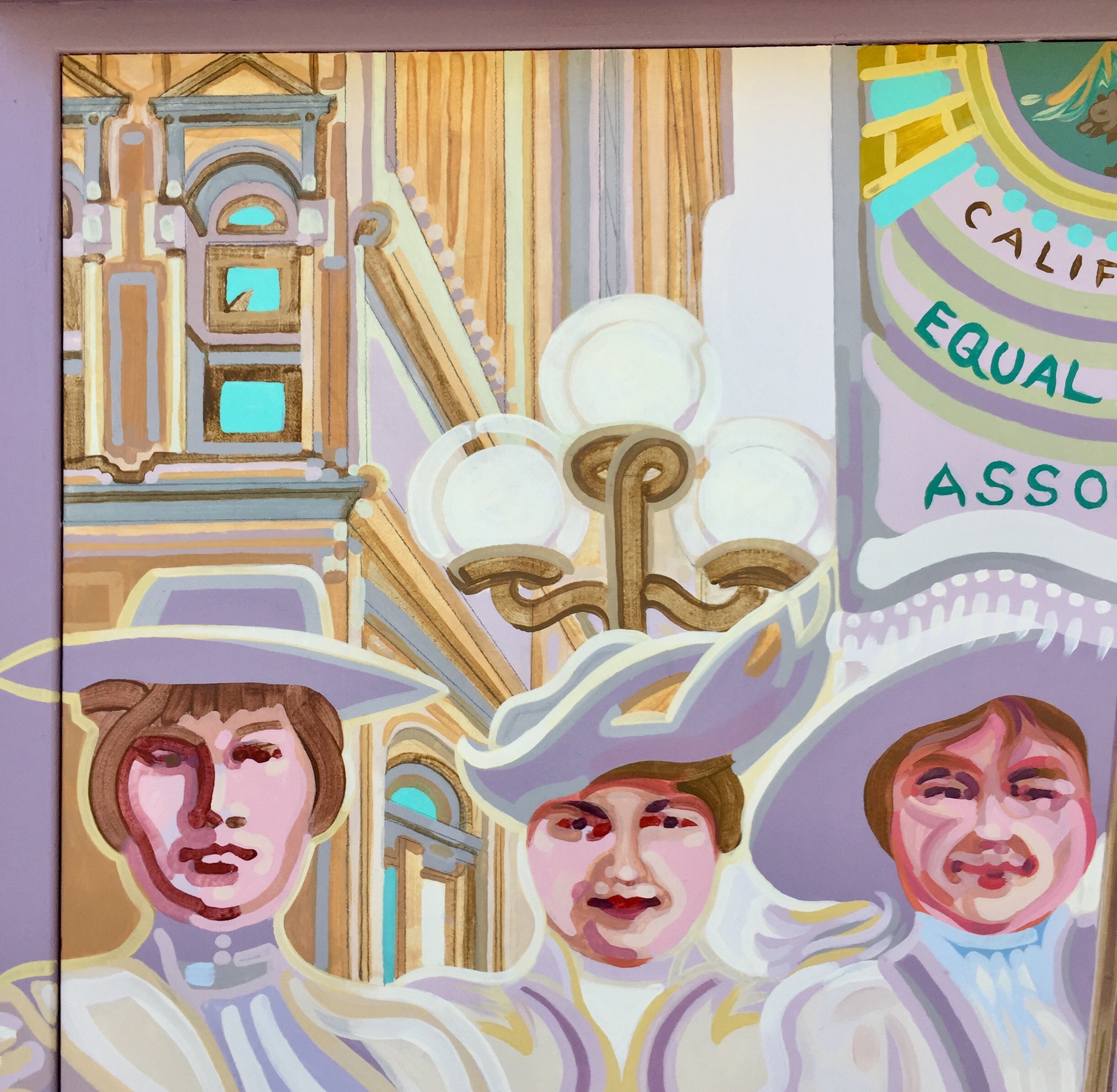
Women’s fight for the vote took 80 years! And that was only 100 years ago.
Initially, most people in America could not vote. I detail these milestones on the panels of the open door:
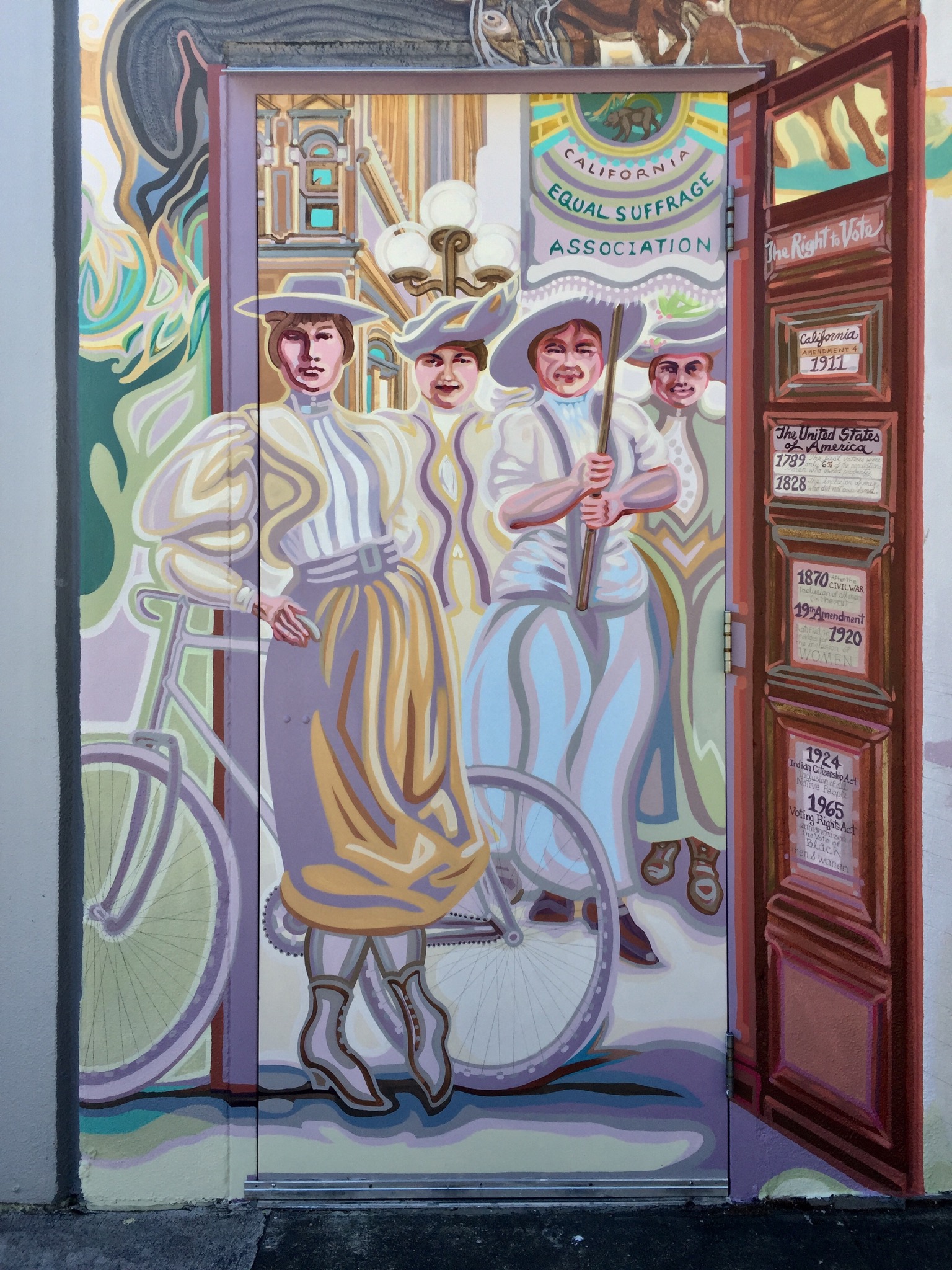
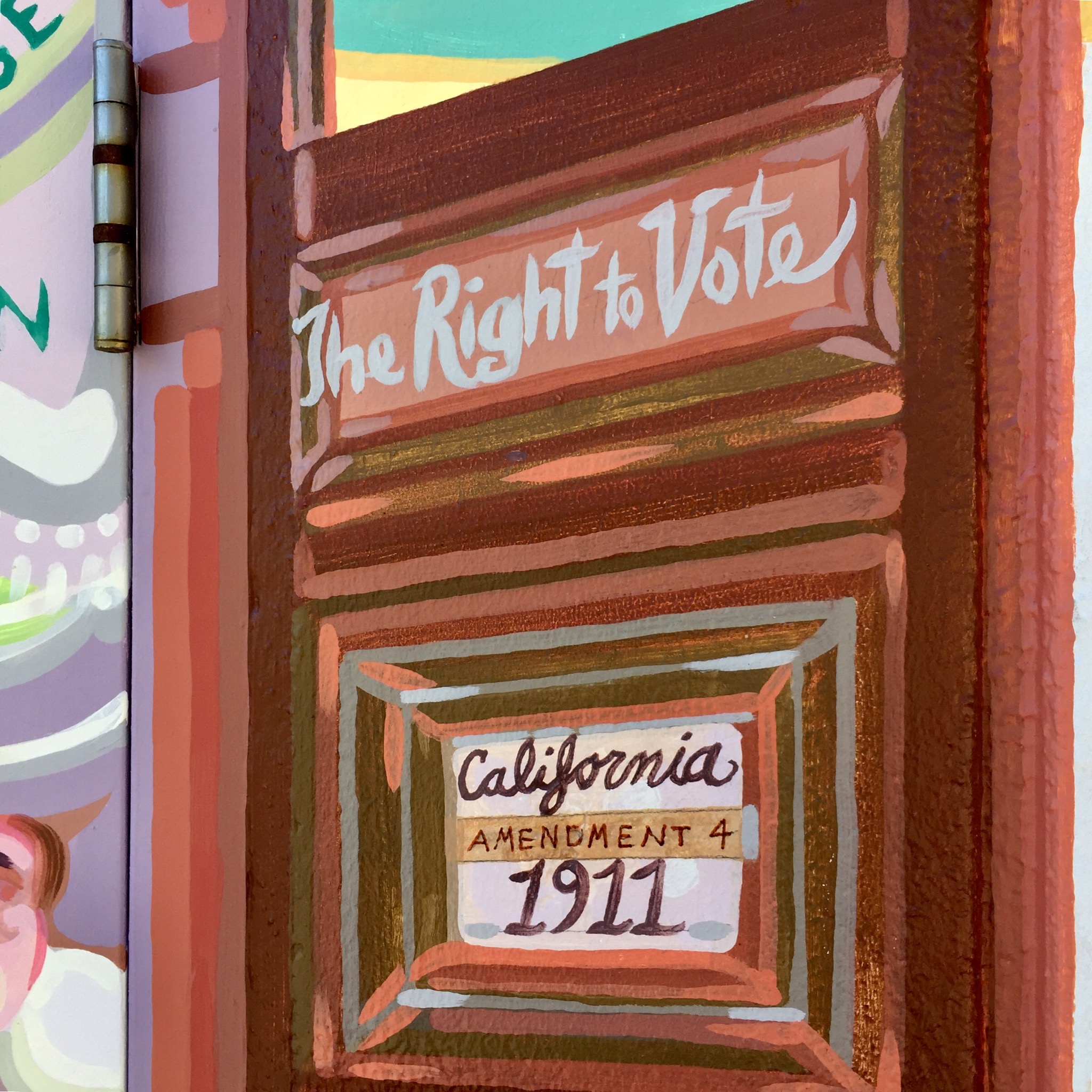
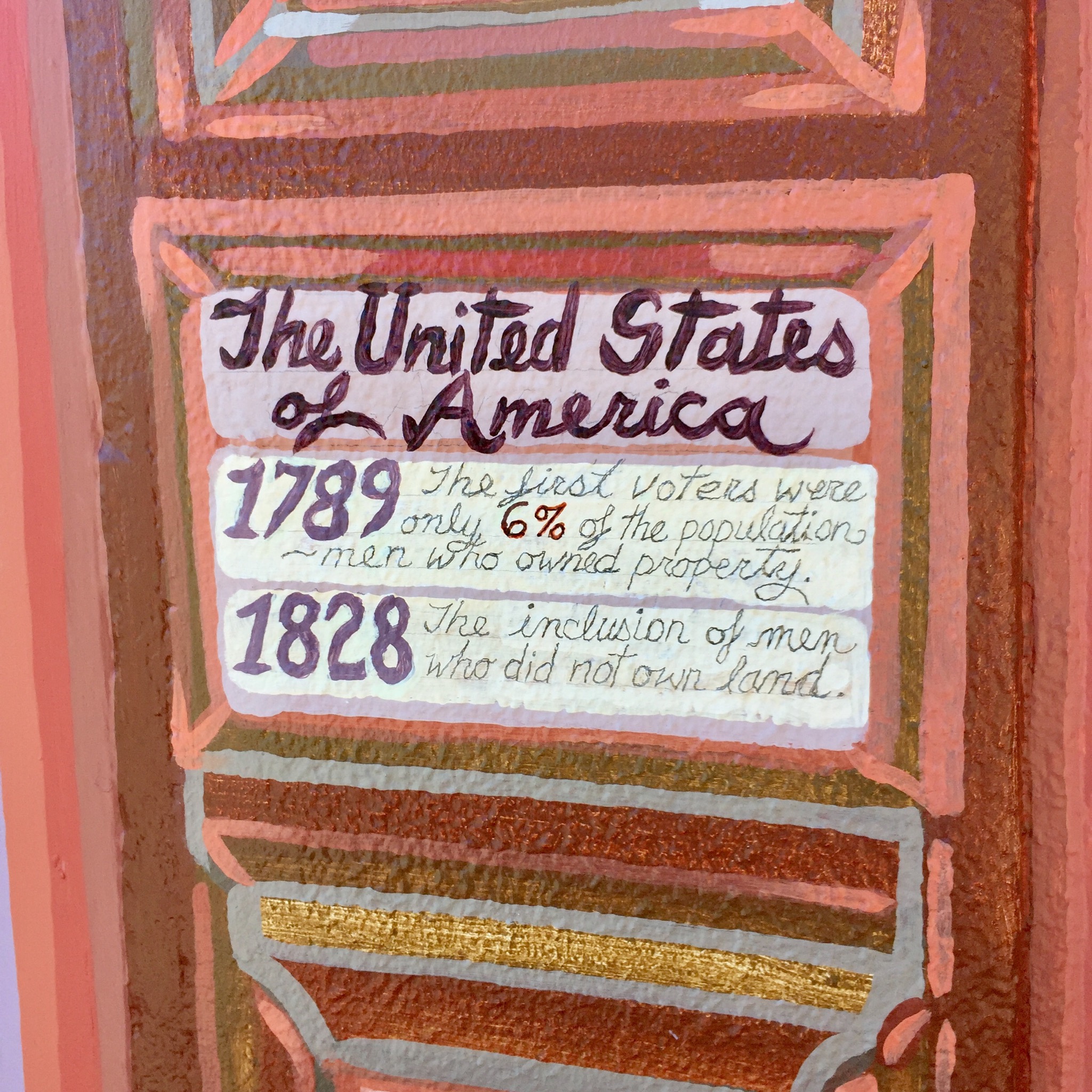
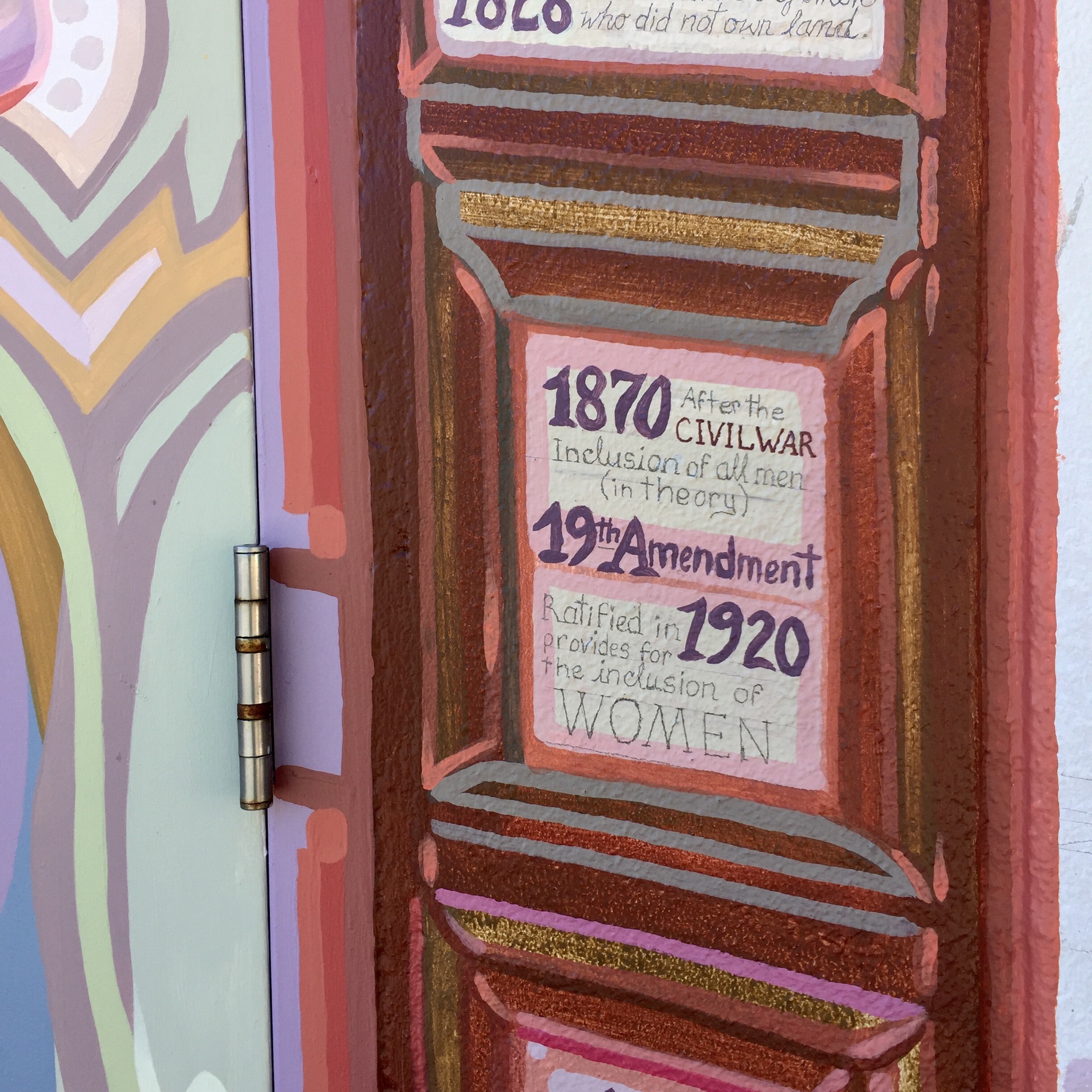
In reality, Black men were often prevented by violent means from voting or running for office. The 19th Amendment is ratified in 1920 giving women their vote.
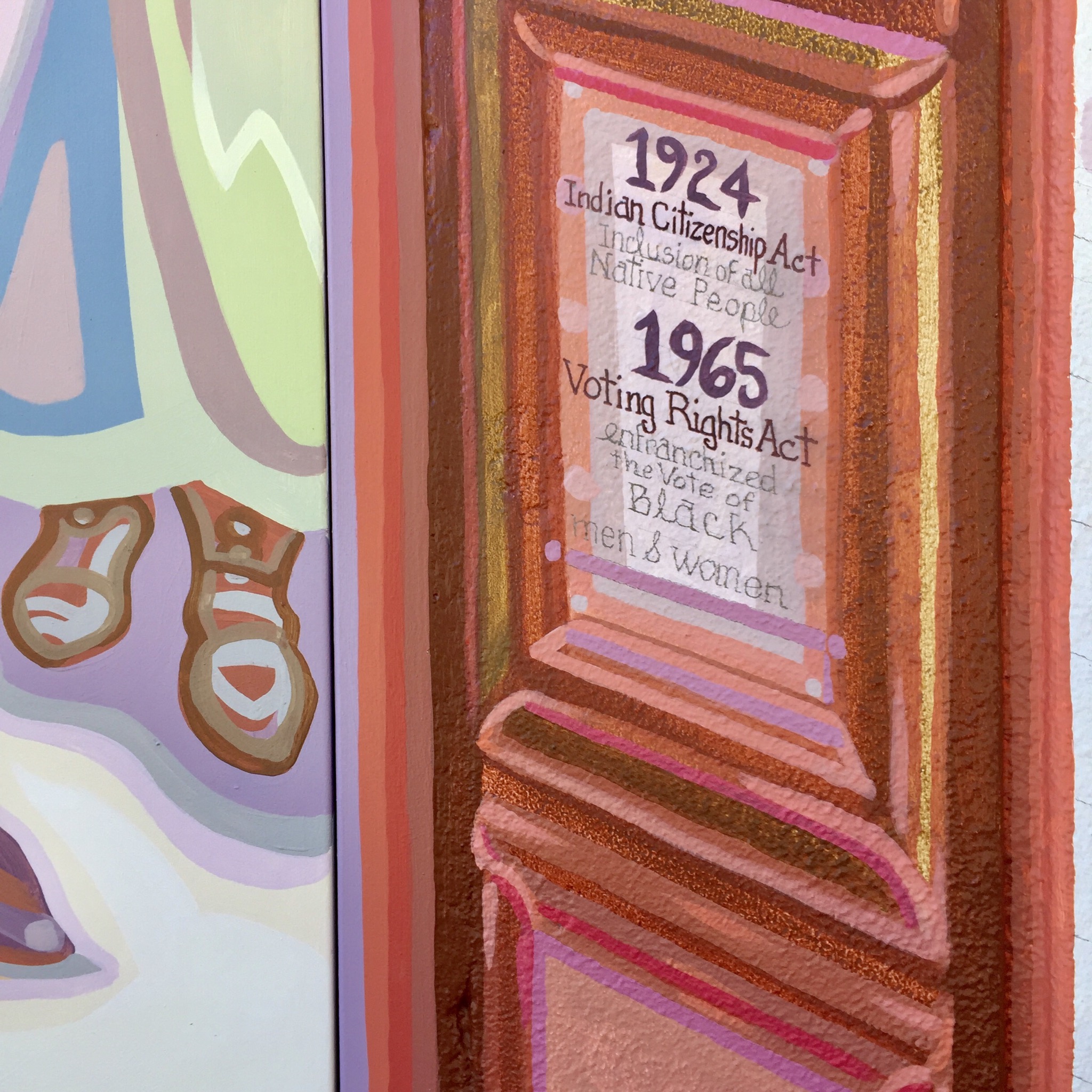

The modern bike was developed in the late 1890s, with a chain-driven gear train on the rear wheel, and pneumatic tires, as opposed to the giant front wheel bikes that were quite hard to ride.
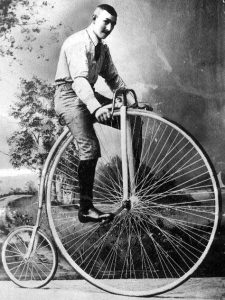
The penny farthing bike was dangerous. It was easy to take a header over the front wheel and women’s voluminous clothing wouldn’t stand a chance near those spokes!
The modern bicycle was affordable and gave women autonomy. Women riding bikes blatantly disproved the silly belief that women were weak. It was thought that women did not have the physical, intellectual or emotional capacity to pursue serious study, to enter professions, to vote.
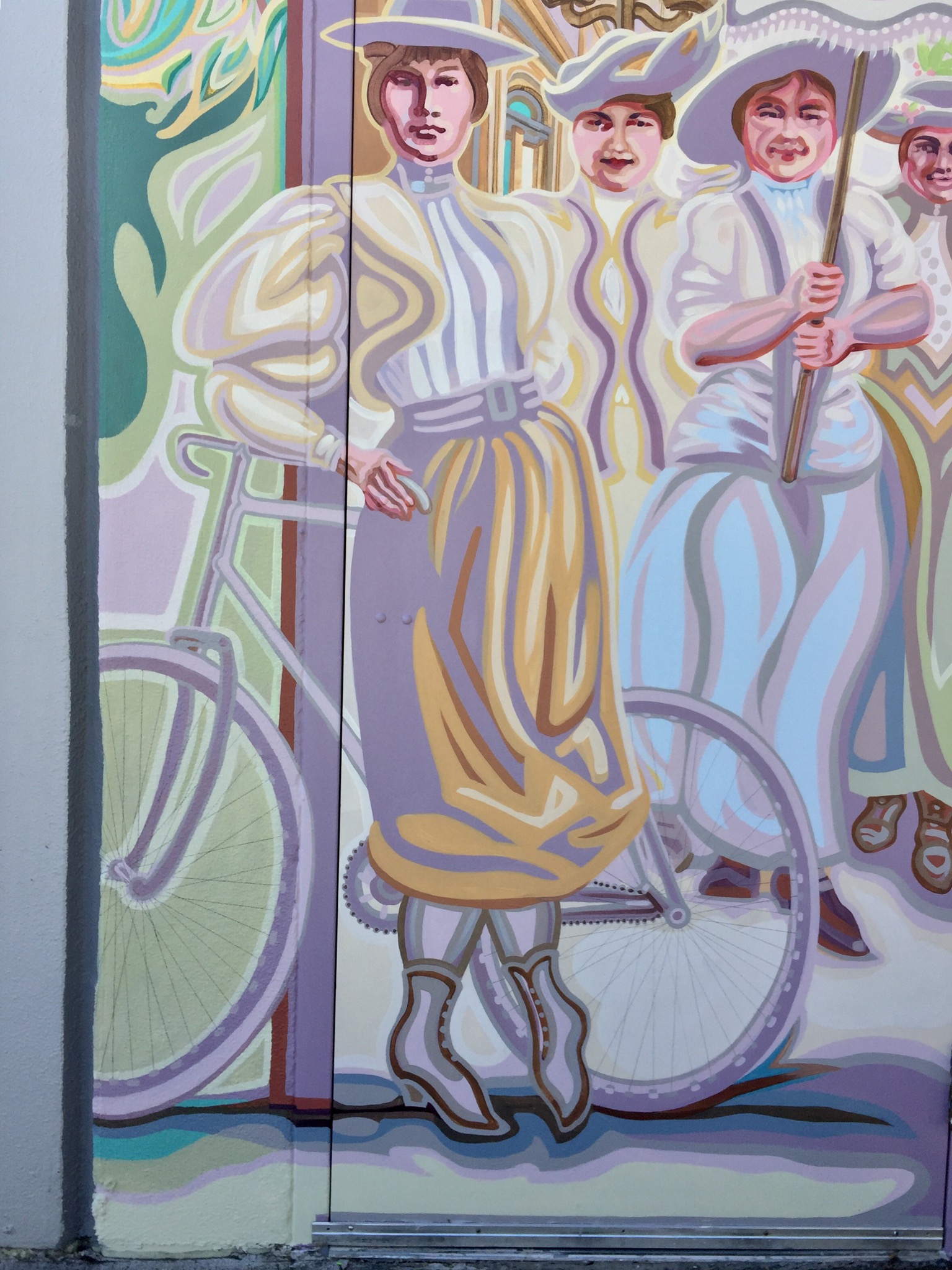
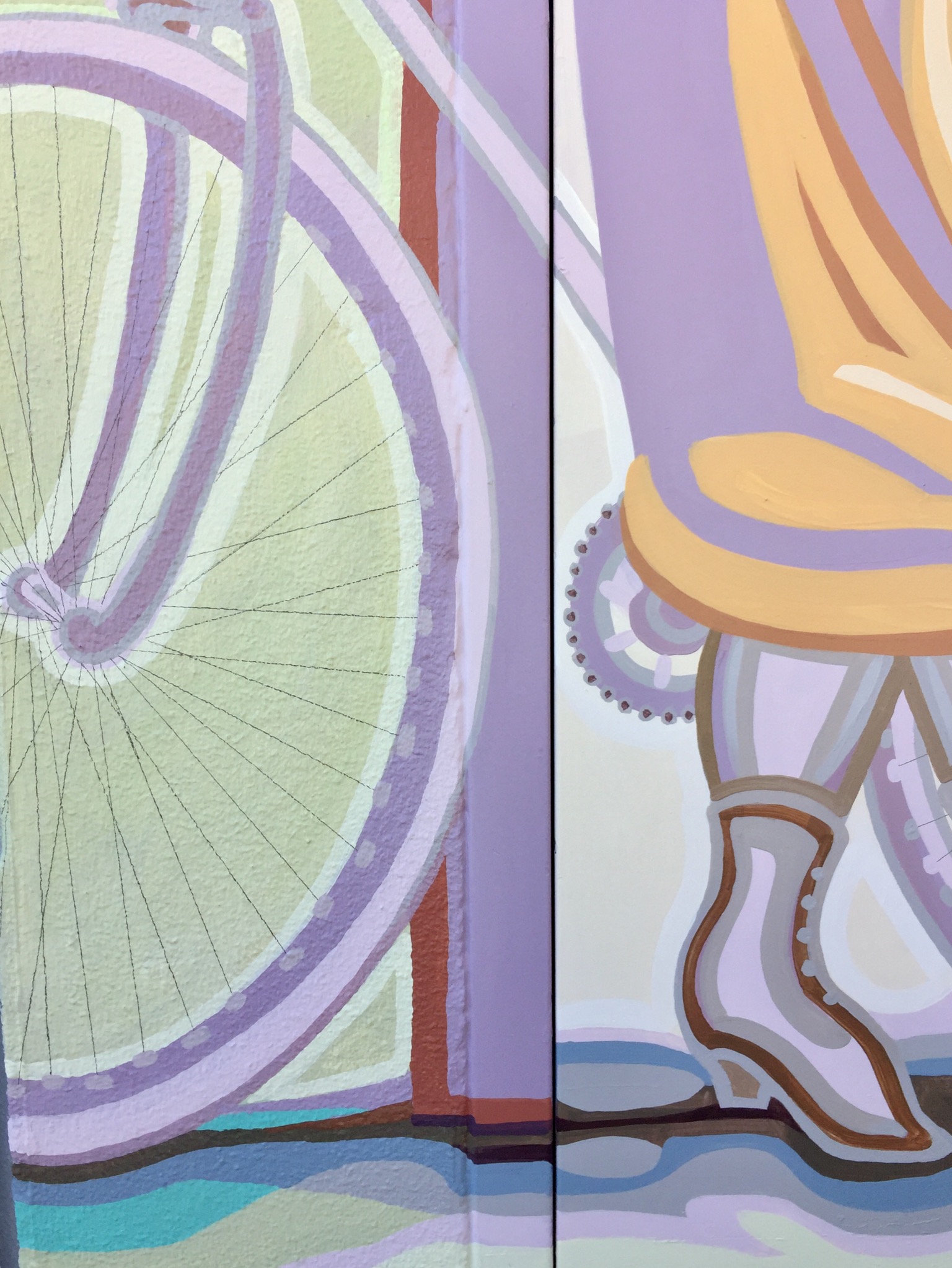
Susan B. Anthony said that bicycles had “done more to emancipate women than anything else in the world.”
Elizabeth Cady Stanton said “Woman is riding to suffrage on the bicycle!”
Moreover, the woman with the bike is a portrait. I learned about Annie Londonderry from the Journal of the Historical Society of Mendocino County the 19th Amendment Centennial Issue.
Annie Cohen Kopchovsky was a Latvian immigrant who presented herself as Annie Londonderry, and in 1894–95 became the first woman to bicycle around the world. This involved a fair amount of travel by ship and other means, but was still a daring adventure, compounded by the fact that she had not ridden a bike before. She started in Massachusetts and by the time she reached Chicago she had switched from a skirt to bloomers.

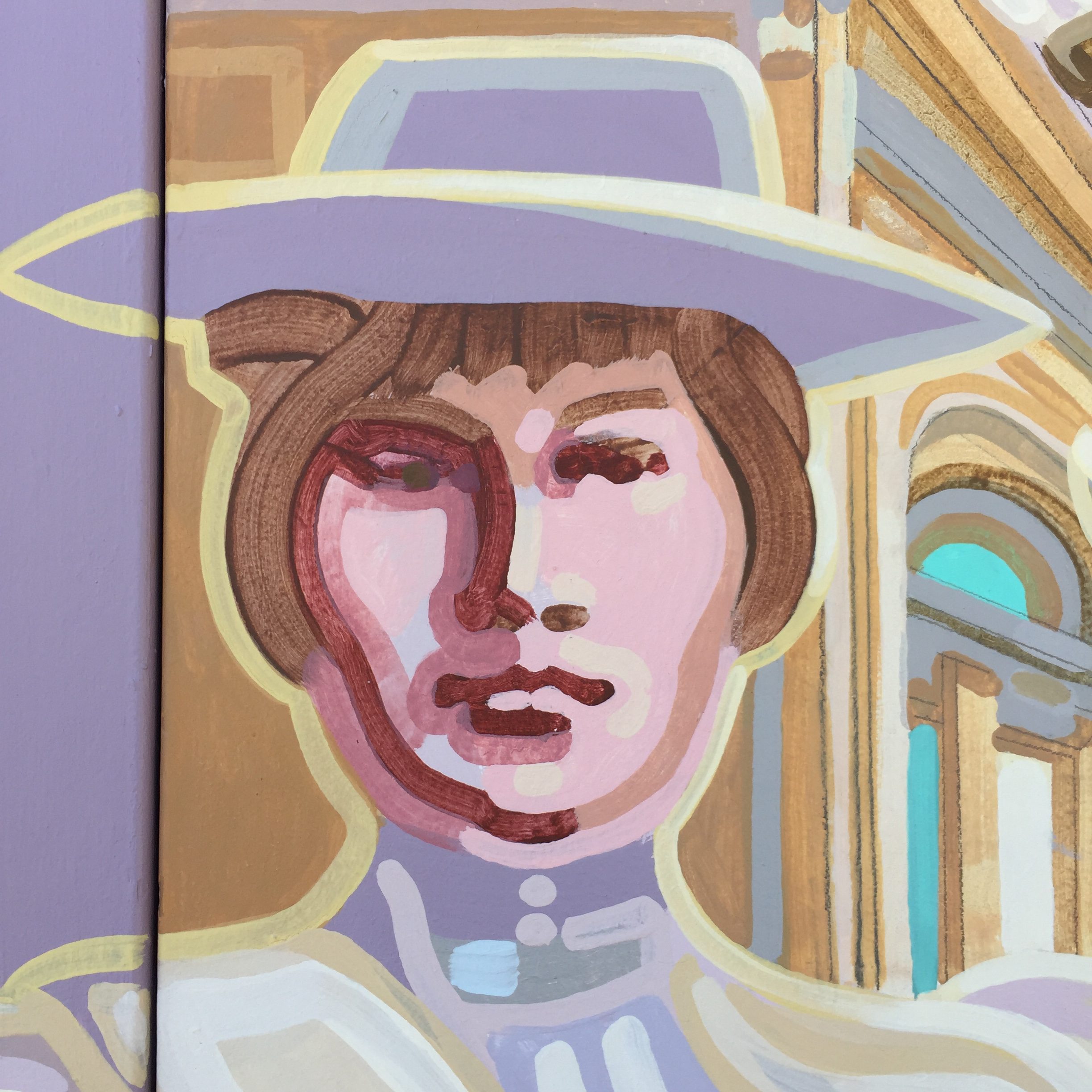
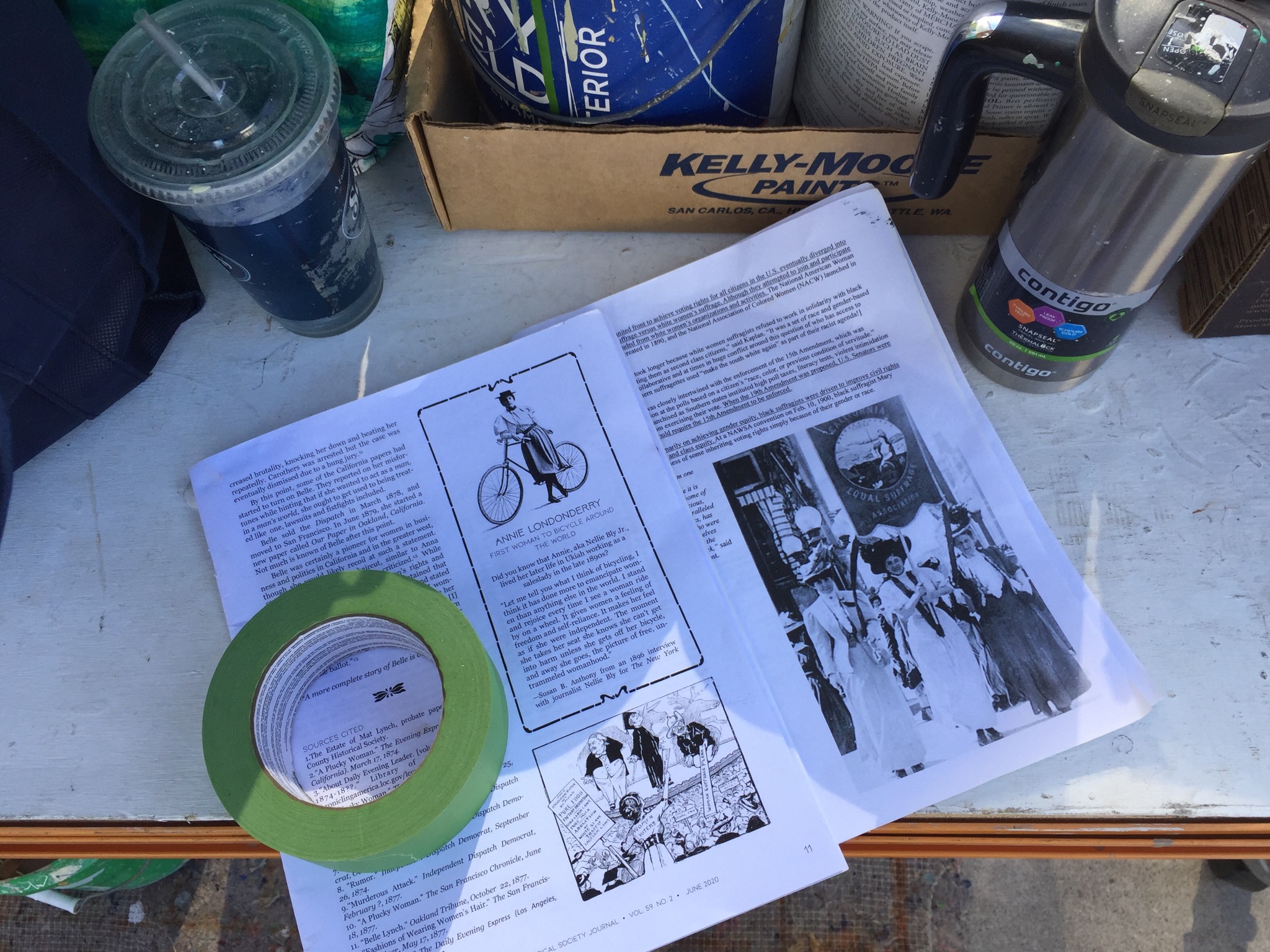

She lectured to an enthralled press during her tour, spinning wild tales of her background and exploits. Later in life, she spent a year in Ukiah as a saleslady.
Previous panel:
Next panel: